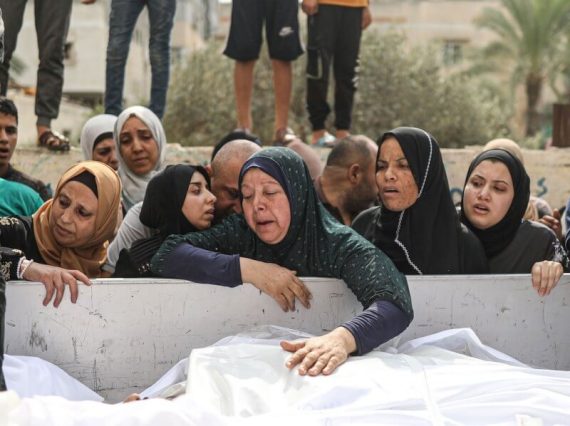T
he Israeli-Palestinian conflict is a century old. Throughout the years, there have been many actors involved in this conflict. After 1967 and 1973, the Palestinians developed different entities that fought Israel using their own local means. Hamas recently appeared on the stage and has increased its effectiveness primarily in the Gaza Strip. In the past decade, Hamas has become an effective actor in the West Bank.
The Al-Aqsa Flood Operation launched by Hamas has brought the Palestinian issue back on the agenda. In the context of regional developments, the Palestinian experience has been increasingly disregarded, which can be seen as the external reason for the intensive operation against Israel on October 7. The current developments increase the responsibility of the Arab nations in the region, and signify a shift in the Palestinian leadership against Israel.
Palestine returns to the regional agenda in a brand-new light
With the Arab uprisings, the issue of Palestine and Jerusalem was left on the sidelines as other events and other actors in the region came to the fore. In the past decade, Palestine has been overlooked and become a victim of the Arab uprisings.
During this period, the Egyptian tunnels, which were Gaza’s only connection to land, were closed with Sisi’s coup in 2013. This exacerbated the difficulties that 2.5 million people experience daily in the narrow strip of Gaza. Not to mention the fact that the number of Palestinians killed by Israel since the Arab uprisings exceeds 5,000—in the last year alone, over 1,000 Palestinians have been killed.
A second regional issue is that other Arab countries from Morocco to Jordan, and Saudi Arabia to the Gulf countries have not included the Palestinians in their normalization policies with Israel, known as the Abraham Accords. In other words, they have presented the matter of normalization with Israel as one that is solely between them and Israel, and have left the Palestinian actors out of the picture. Operation Al-Aqsa Flood has brought the Palestinian issue back to the agenda.
Countries like Syria, Jordan, Egypt, Libya, and Yemen, which support the Palestinian cause, have not been able to take a political stance on the Palestinian issue due to their internal turmoil. Arab countries, especially the Gulf countries which have been carrying out the normalization process with Israel may be prompted to rethink the process.
In this context, it should be taken into account that until recently, one of the sources of legitimacy of the regimes, monarchies, and states in the Arab world was the nature of their relations with Israel. Now, Palestine and Jerusalem are back on the agenda in a brand-new light, imposing great responsibilities on other countries in the region in the forthcoming process.
What is next in the Israeli-Palestinian conflict?
For the first time since 1973, the Israeli people are partially experiencing what Palestinians have been experiencing for years in the territories they claim as their own—in other words, the conflict has spread not only to the settlements bordering Gaza and the West Bank, but also to settlements further inland. As a result, it is unclear whether Israel’s security elite will adopt a homogeneous stance on how to proceed with Gaza due to political differences in Israel and dispute over judicial reforms.
Hamas, which is the primary actor in this operation against Israel, faced very serious criticism for re-establishing relations with both the Damascus regime and Iran due to the attitude taken by Iran and Russia in Syria. Even though the Hamas leadership argued that the Palestinian context is different, those who opposed Hamas criticized them claiming that Yemen, Aleppo, or Idlib are no different than Jerusalem and Gaza.
However, with the recent development, Hamas has regained its legitimacy as a new and stronger actor. The new Palestinian leadership will have a unifying effect on other Islamist and Islamic movements, or other actors that have emerged with the Arab uprisings in the region.
The fact that Mahmoud Abbas officially called for restraint as a third party in this latest incident has caused a lot of controversy within Fatah. This is not yet reflected in the media, but they are very seriously discussing Abbas’ statement within their own ranks. It seems that they are putting pressure on Fatah to take a stronger stance, as its first source of legitimacy was resistance against Israel.
From now on, Palestinian leadership will sever links with both Fatah and Hamas, forming a common cluster from both factions and moving on. It is also very likely that a two-state solution will come to the fore in the region.
Recommended





